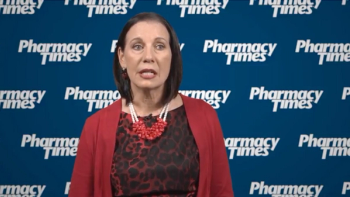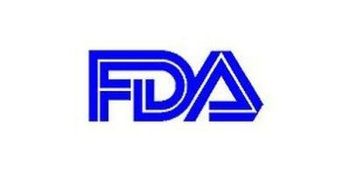
he FDA has expanded the approval of eltrombopag (Promacta) in combination with standard immunosuppressive therapy (IST) to include newly diagnosed adult and pediatric patients 2 years and older with severe aplastic anemia.

he FDA has expanded the approval of eltrombopag (Promacta) in combination with standard immunosuppressive therapy (IST) to include newly diagnosed adult and pediatric patients 2 years and older with severe aplastic anemia.

Rifamycin's effectiveness was shown in a randomized, placebo-controlled clinical trial during which the drug significantly reduced symptoms of travelers’ diarrhea in adults afflicted with the condition in Guatemala and Mexico.

When fish oils are given to the general public, there was not a reduction of major cardiovascular events. Among subgroups, differences were noted.

The FDA has expanded the approved use of Seattle Genetics’ Adcetris (brentuximab vedotin) injection in combination with chemotherapy for adult patients with certain types of peripheral T-cell lymphoma (PTCL).

Each year, the National Academy of Medicine hosts its DC Public Health Case Challenge to promote interdisciplinary, problem-based learning that focuses on an important public health issue facing the Washington, DC community

A significant increase in e-cigarette use among middle school and high school students in the United States has driven an overall rise in youth tobacco consumption, according to survey results released by the FDA and the CDC.

This weekly video program provides our readers with an in-depth review of the latest news, product approvals, FDA rulings, and more. Our Week in Review is a can't miss for the busy pharmacy professional.

The Committees voted 12 to 5 that the drug should be labeled as an abuse-deterrent product by the nasal route of abuse, but they voted 10 to 7 that the drug should not be labeled as an abuse-deterrent product by the intravenous route of abuse.

If what you are doing day-in and day-out is NOT creating new patients purchasing your products and services, why are you spending any time doing it?

The findings revealed that 78% of pharmacists across pharmacy settings look forward to playing a greater role in patient care and the majority expect to spend more time on patient-focused activities in the next 5 years.

Research on nonalcoholic fatty liver disease (NAFLD) in persons infected with HIV revealed a prevalence of the condition of about 40%, suggesting the condition may be an underappreciated comorbidity in this population.

Nonsteroidal anti-inflammatory drugs should be used as the first line treatment for acute gout.

Your current patients will make you richer faster, because they admire—even love you and adore you—for what you do for them already.

The health care setting has the largest and most diverse array of agents that are hazardous to humans.

Officials with the FDA noted that patients are sometimes being treated with medications that are not approved (including compounded medicines as well as hydromorphone, bupivacaine, fentanyl and clonidine) for use with an intrathecal implanted pump.

The AMA and CDC are working with their local offices, affiliates, and partners to promote and activate the campaign in their communities, with evidence-based materials to aid physicians and other health care providers in the screening, diagnosis and treatment process.

Millions worldwide dread the onset of debilitating migraines. There is a new drug class on the horizon that is thought to put a stop to the root of migraines.

The FDA has accepted Genentech’s supplemental Biologics License Application (sBLA) and granted Priority Review for Tecentriq® (atezolizumab) plus chemotherapy (Abraxane® [albumin-bound paclitaxel; nab-paclitaxel]) for the initial treatment of unresectable locally advanced or metastatic triple-negative breast cancer (TNBC) in people whose disease expresses the PD-L1 protein, as determined by PD-L1 biomarker testing.

In this clip, Debra Goff, PharmD, FCCP, infectious disease clinical pharmacist and Associate Professor at The Ohio State University, tells Pharmacy Times about One Health, a movement dedicated to bringing together different fields that handle antibiotics to prevent the misuse of these bacteria-killing drugs.

New research underscores the value of review by an ID physician, nurse, or pharmacist before starting OPAT.

The recently launched tool allows patients to efficiently manage their program in real-time.

A new report published in the CDC Morbidity and Mortality Weekly Report (MMWR) has linked cases of acute hepatitis A virus (HAV) infections from certain states to person-to-person transmission from drug use or homelessness.

On Wednesday, October 24, and Saturday, October 27, student pharmacists from the University of Maryland School of Pharmacy chapter of the APhA-ASP joined forces with the University of Maryland, Baltimore Police and the Drug Enforcement Administration (DEA) to host our bi-annual Drug Take-Back Day at the University’s SMC Campus Center.

DarioHealth Corp., a leading global digital health company with mobile health and big data solutions, has announced that it has signed an agreement for the rollout of a Digital Diabetes Education and Rewards Program to Giant Eagle's consumers through the pharmacy's 214 locations.

Can you solve the pharmaceutical mystery? Each week, a new case study is presented.

In this clip, Ruth O'Regan, MD discussed the future of chemotherapy as it relates to treating patients with breast cancer.

As targeted therapies for cancer continue to shape the health care landscape, health care providers may increasingly utilize liquid biopsies to identify potential treatment resistance.

The FDA approved Merck’s pembrolizumab (Keytruda) for the treatment of patients with hepatocellular carcinoma who have been previously treated with sorafenib.

Revefenacin (Yupelri, Theravance Biopharma and Mylan) is the first once-daily, long-acting nebulized bronchodilator for the treatment of chronic obstructive pulmonary disease.

Site-specific immune inflammation has been examined using intralesional injections of oncolytic viruses.